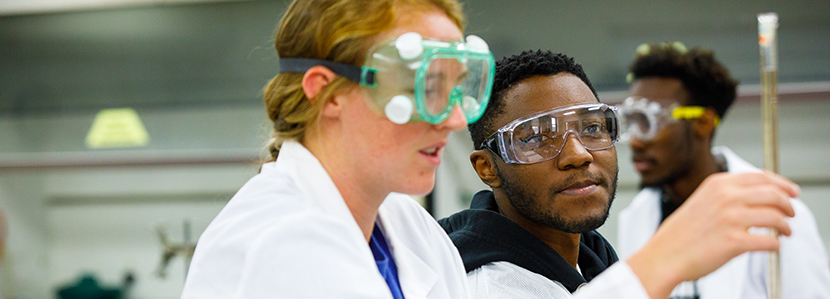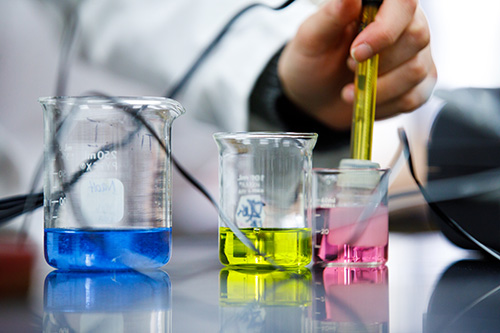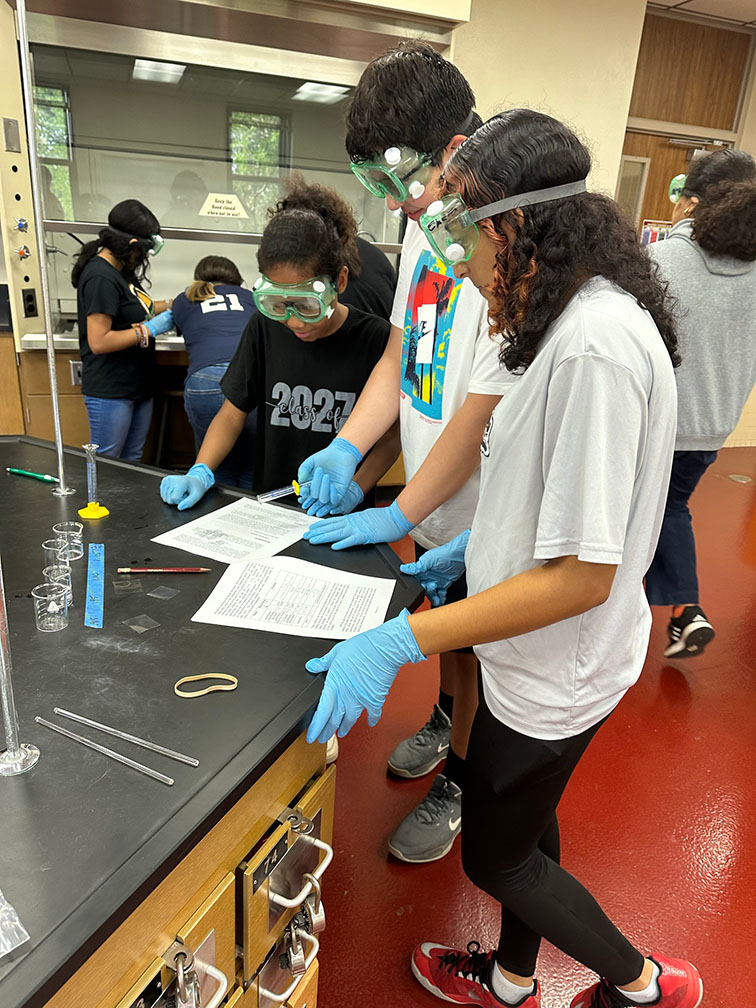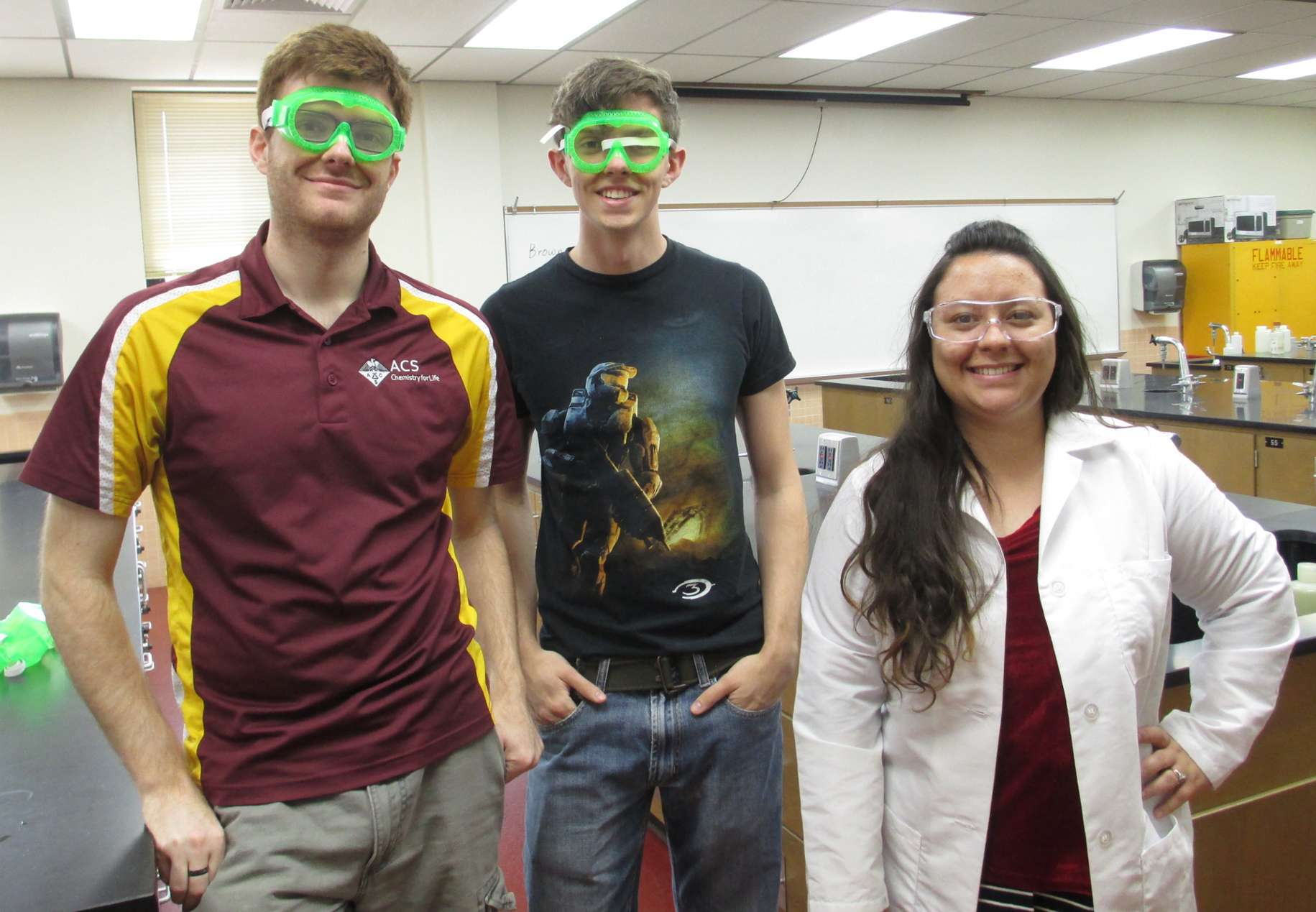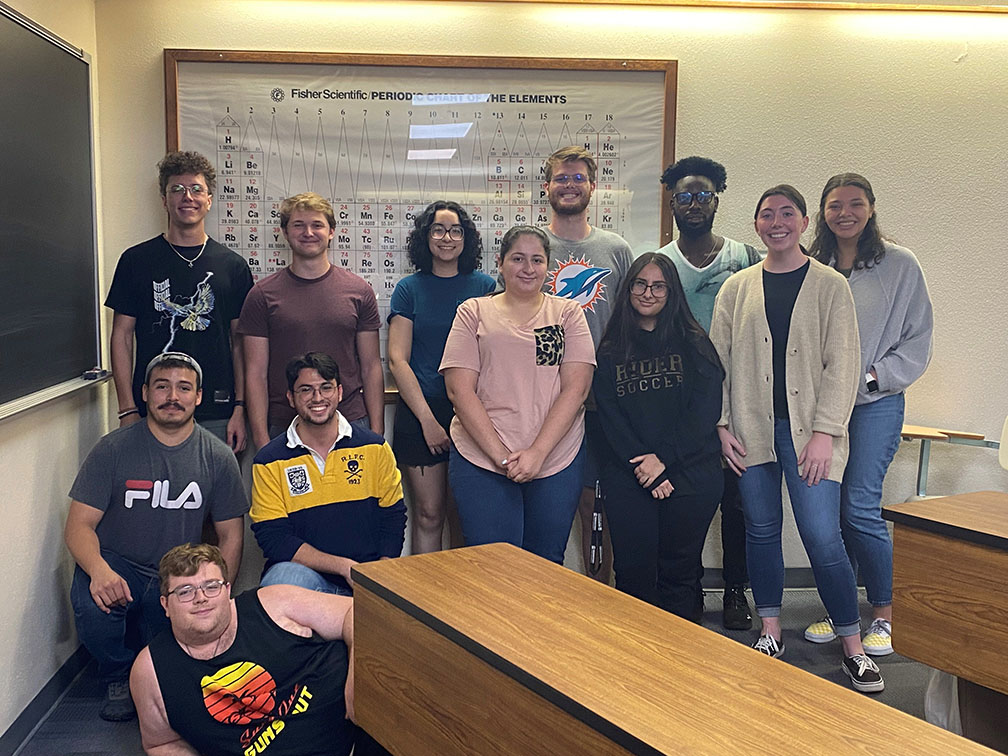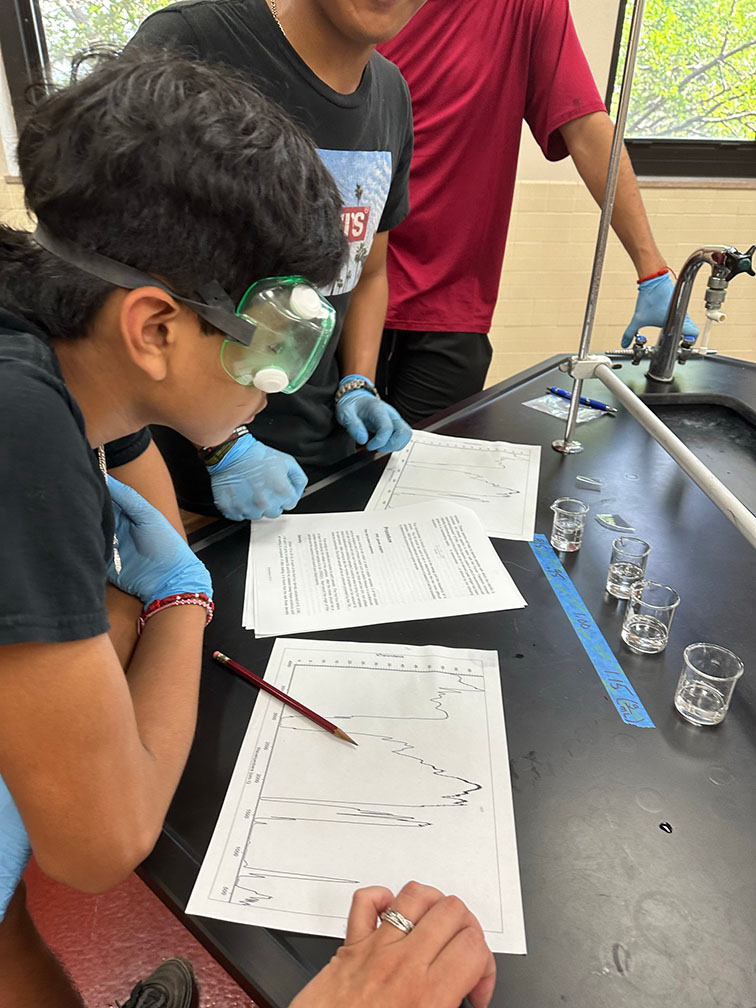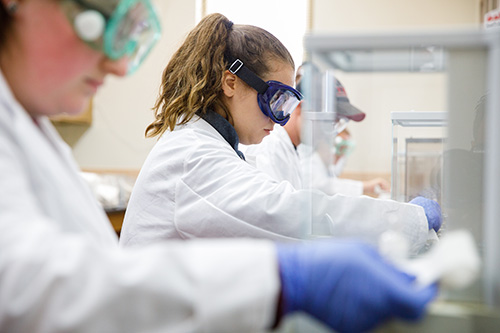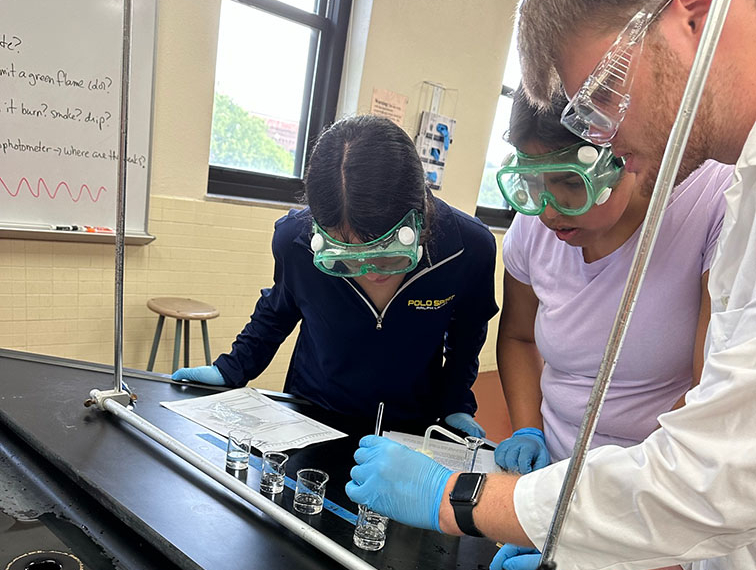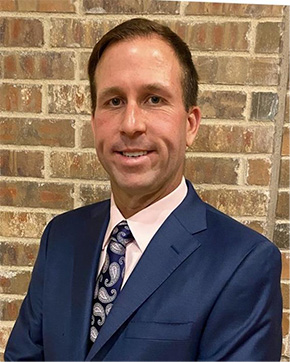Major in Chemistry
Chemistry is central to all other scientific endeavors. Students who study chemistry gain skills to create, solve problems, and apply knowledge. Chemistry is vital to understanding the natural world, advancing technology, and solving problems related to medicine, health, food security, crime, and personal care.
Students majoring in chemistry may choose from careers in research, medicine, academia, industry, or government. Whether developing skills for other STEM related fields or embarking on new discoveries and innovation, chemistry prepares students to engage in careers addressing today's most pressing global issues.
of majors pursue graduate and professional degrees after graduation
Awarded in Welch Student Research Scholarships each year
of Chemistry majors receive scholarships and undergraduate research positions
of students accepted into medical or professional school after completing Health Professions Advisory Committee interview

Why Study Chemistry at MSU Texas?
The chemistry program of Midwestern State University emphasizes personalized instruction and student research. Students receive direct individual attention by the faculty of Ph.D. chemists in small classes and seminar groups and are encouraged to start work on a research project as early as the second year of study. This commitment has been supported by over $1.3 million in faculty and departmental research grants and student research scholarships. Results from undergraduate research projects have been presented at regional and national conferences and published in scholarly journals with international distribution.
MSU chemistry stands as one of 35 programs in Texas 701 nationally, and only one of two small public universities certified by the American Chemical Society. Approval is based on excellence in chemistry education, accomplished faculty, and rigorous programming. MSU has been certified since 1970.


Bachelor of Science in Chemistry: Program and Requirements
Each year when the Academic Catalog is published, we release an updated degree plan. You will use this plan to chart your academic course toward earning your degree. You will keep and follow this plan throughout your tenure at MSU Texas (unless you decided to change your catalog year, but you can chat with your academic counselor about that at a later date, if necessary).
View the Chemistry Undergraduate Program page
What can I do with a degree in Chemistry?
- Forensic Chemist
- Pharmaceutical Chemist
- Research and Development Chemist
- Medical Doctor
- Biomedical Researcher
- Environmental Scientist/Consultant
- Water Chemist
- Food Chemist
- Chemistry Teacher
- Quality Control
- Chemical Safety Officer
- Dentist
- Veterinarian
- Food Chemist
- Toxicologist
- Pharmacist
- Pharmacologist
- Chemical Engineer
- Materials Scientist
- Science Curriculum Specialist
- Federal Positions in Food and Drug Administration, Patent and Trademark Office

The chemistry department faculty and fellow students really helped me rediscover my passion for science. Had it not been for the wonderful professors, I'm not sure I'd be the chemist I am today.
Hayley Liddiard

